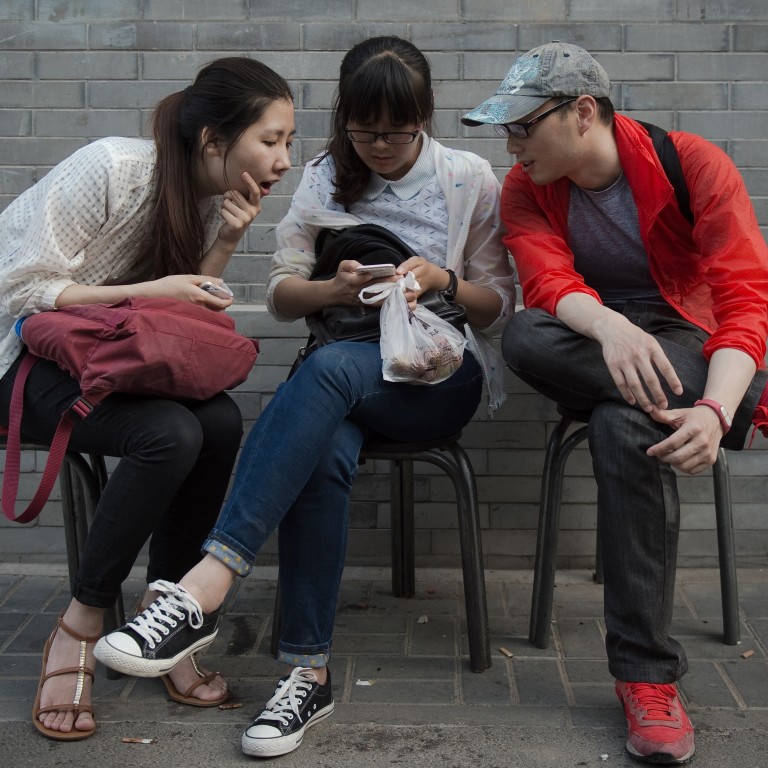
Old news breaches China’s trade war media controls in fake truce hope
- Xinhua story from last year republished by several online outlets goes viral
- Rare slip in central control of serious political reporting, experts say
There was elation, followed by confusion, among Chinese followers of the latest trade war news on Monday when several online media outlets announced a truce between China and the US.
In fact, the year-old report was originally published by the state-run Xinhua news agency on May 20, 2018 when the two countries had agreed to a short ceasefire as part of their trade negotiations.
The blunder occurred at about 8.20am, when the story – headlined “The US and China declared a truce in the trade dispute” and referring to a joint statement apparently released by the two sides a day earlier – was published on news apps including Toutiao, Phoenix News, NetEase and Sohu News.
In reality trade talks have so far failed to resolve the dispute and Beijing has vowed to raise tariffs – as high as 25 per cent – on thousands of US products, in retaliation for Washington’s latest tariff hikes on Chinese goods.
Some hours later Xinhua put out a clarification to say it was not responsible for the re-release of the report and condemning the incident as “sending fake news in the name of Xinhua”. The news agency said it reserved the right to take legal action.
The Chinese government maintains tight control over media reporting of the trade talks and Beijing has been ramping up its nationalist rhetoric with a series of commentaries and editorials in state media blaming Washington for the latest escalation.
News of the apparent truce was widely shared, going viral on Chinese social media, in the hours before Xinhua’s statement.
“It was all over the internet, so many people are posting that truce story,” a member of the public named Zi Yuan commented on Xinhua’s WeChat channel.
“I was shocked as I actually saw nothing about the truce from the official media or major Western news websites via VPN. I thought I must be missing something major.”
What killed US-China trade talks: A tale of two texts
A state media source said the mix-up could have been due to a technical error. “It could be [the outlets] are using algorithms to identify and publish stories about trade wars based on certain key words and that story was selected accidentally,” he said.
Experts said it was more likely the websites concerned had failed to check the story before publishing, rather than any attempt to make up news on the trade war, but that there could be consequences.
“These websites don’t have the right to do original reporting. When they saw a story under the title of ‘Xinhua’, they just carried it [without checking the date],” said Wei Yongzheng, a prominent media law expert in Shanghai.
Wei said the news sites had an obligation to be responsible, “especially for these major political news stories. They must directly carry reporting from central official media, like Xinhua, People’s Daily or CCTV”.
Chinese media warns US it risks making ‘mistake after mistake’
One online media editor said the incident might lead to penalties for the affected websites, because they had failed to double-check before publishing “serious political news”.
The story flooded Chinese social media, possibly because it reflected people’s wishes for an end to the trade war, Wei said.
“Ordinary people don’t want the trade war started by the US. It has an adverse effect on us,” he said. “The price of commodities will rise; foreign capital will be withdrawn, and people will lose their jobs.”
When they saw the out-of-date report, they were happy about what they thought was good news and shared it quickly online, so that it went viral, Wei said.
China ‘a kung fu master that can deliver deadly trade war punch to US’
Zhan Jiang, a retired professor of journalism and communications at Beijing Foreign Studies University, said the clarification from Xinhua showed the government’s control over the discourse of power.
“Circumstances change constantly … Xinhua carried that story last year, but it doesn’t mean online media can publish it right now,” Zhan said.
NetEase and Sohu have not replied to a request for comment.
Additional reporting by Laura He

